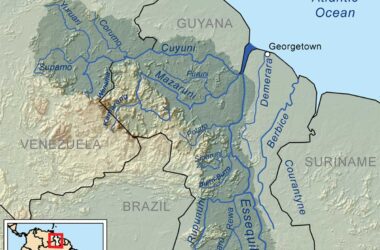In an attempt to raise the standard of football in the country and present the sport as a respectable income earner for players and other talents that have a bearing on the development of the game, the Saint Lucia Football Association (SLFA) Inc, along with the Government of Saint Lucia and other stakeholders, have finally managed to put in place a semi-professional league.
We say ‘finally’ because this idea of a semi professional football league did not germinate overnight. This was talked about for many years, but like many good ideas emerging from the corridors and peripheries of government, collecting dust on a shelf or hiding in a filing cabinet have been the final resting place for them.
We cannot lay a finger on exactly what moved the machinery which churned out the force that transformed the idea of a semi professional football league into a reality, however we are grateful.
And so, last Sunday at the Mindoo Phillip Park, in the eyes of the world, the Saint Lucia Semi Professional Football League revealed itself with Marchand taking on Babonneau in its first historical match in Tier 11. The first match of the league in Tier 1 was Gros Islet playing La Clery.
What we saw last Sunday was more than a football match but the creation of an event that serves as a crucial bridge between amateur and professional levels, benefiting the players and the nation at the same time.
For instance, Saint Lucia is a developing country which struggles to provide adequate infrastructure and resources for football development. We see this semi-pro league offering talented players a platform to showcase their skills, receive coaching, and improve their game.
This league will allow players to compete at a higher level, facing tougher opponents, hereby honing their technical abilities, tactical understanding, and mental resilience.
But skills enhancement and talent development are not the only positives of the semi pro league. The league generates income for semi pro players, some form of payment, albeit lower than professional players. This income can be significant for individuals who may not have other employment opportunities. It helps them sustain themselves and their families. And while some people may consider the income low today, it can only get higher as time goes by.
No doubt this a boost to the local economy in terms of ticket sales and sale of football merchandise. Even local businesses benefit from increased footfall during match days. This economic boost extends beyond players to vendors, staff, and fans.
We must not forget the pride of a community in its team. Semi-pro teams often represent specific regions or neighbourhoods. When players wear their local Club colours, it fosters community pride and unity. Fans rally behind their team, creating a sense of belonging.
Then there are the aspiring young footballers in the communities. We are certain that as time goes by the league will get financially stronger. Therefore, with more and more money going into players pockets, these aspiring players will look up to these semi-pro players as role models. Their success stories will inspire the next generation to pursue the sport seriously. This can lead to a positive cycle of talent development.
We are also certain that the semi pro league will force an upgrade to the island’s infrastructure. Hosting semi-pro matches necessitates better facilities. Saint Lucia will have no choice but to invest in improving stadiums, training grounds, and amenities which benefits not only players but the community as well.
The Saint Lucia Semi-Pro Football League has another big advantage in that it serves as a stepping stone for players aiming to turn professional. We are of the view that as the league gets better, scouts from professional teams will be on the lookout for fresh talent. It is quite possible that a talent from the semi pro league can secure a contract with a professional football club.
The league provides a clear pathway for player progression, meaning it provides a structured route from grassroots football to the national team or international leagues. Furthermore, it encourages physical activity and fitness, reduces sedentary lifestyles and associated health risks.
Just imagine communities on the island rallying behind their semi-pro team. Not only does that strengthen social bonds but makes football a unifying force, transcending differences.
And so a semi-professional football league, like what we have today, is more than just a sporting event; it’s a catalyst for positive change. By nurturing talent, providing economic opportunities, and fostering community pride, such a league contributes significantly to the development of a nation. As a developing country, Saint Lucia should recognize the league’s potential and invest in it as as a powerful tool for progress.





